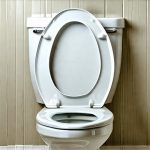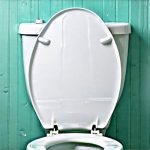Experiencing sudden urges to urinate can be unsettling at any time, but for individuals managing diabetes – particularly those prone to hypoglycemia (low blood sugar) – this symptom can present as a confusing and sometimes frightening phenomenon. It’s not simply a matter of needing to visit the restroom; the urgency often feels disproportionate to fluid intake and can occur even after minimal hydration. Understanding why this happens during low blood sugar requires delving into the complex interplay between glucose levels, hormonal responses, and the renal system. This article aims to explore the connection between bathroom urgency and hypoglycemia, providing insights for those who experience it and empowering them with knowledge to better manage their condition.
The link isn’t always immediately obvious. Many associate low blood sugar with shakiness, sweating, or confusion – the more “classic” symptoms. However, urinary urgency is becoming increasingly recognized as a significant indicator of hypoglycemia, especially in individuals with long-term diabetes who may experience diminished awareness of traditional warning signs (hypoglycemia unawareness). This can be particularly concerning because relying on bathroom urges alone to signal low blood sugar might delay necessary intervention, potentially leading to more severe hypoglycemic episodes. Recognizing this less conventional symptom is vital for proactive self-management and maintaining overall health. Understanding digestive diagnostics can also provide crucial insights into managing blood sugar fluctuations.
The Physiological Connection: How Low Blood Sugar Impacts the Kidneys
The kidneys play a crucial role in regulating fluid balance within the body. Normally, they filter blood, reabsorbing what’s needed (water, electrolytes) and excreting waste products as urine. This process is heavily influenced by hormones such as vasopressin (also known as antidiuretic hormone or ADH). When blood sugar levels drop, the body perceives this as a stressor and initiates a cascade of hormonal responses aimed at restoring glucose balance. Unfortunately, these responses can inadvertently trigger increased urination.
The primary mechanism involves the release of hormones like adrenaline and cortisol in response to hypoglycemia. These “stress hormones” not only stimulate glycogen breakdown (releasing stored glucose) but also inhibit vasopressin secretion. Less vasopressin means less water reabsorption by the kidneys, resulting in a greater volume of urine production. Essentially, your body is prioritizing glucose restoration over fluid conservation during a low blood sugar event. This isn’t a malicious act; it’s an evolutionary survival mechanism designed to provide quick energy, even at the expense of hydration.
Furthermore, the sympathetic nervous system – activated during stress – also contributes to this effect. Sympathetic activation impacts renal blood flow and tubular function, further promoting diuresis. It’s a complex interplay where the body’s attempt to correct low blood sugar unintentionally leads to increased urinary frequency and urgency. For individuals with diabetes, especially those experiencing repeated hypoglycemic events, this can create a vicious cycle of dehydration and fluctuating glucose levels. Considering pancreatic health is also essential for long-term blood sugar management.
Hypoglycemia Unawareness & The Role of Urinary Urgency
Hypoglycemia unawareness is a dangerous complication for people with diabetes, where the body’s natural warning signals of low blood sugar become muted or absent. This often develops over time as a result of frequent fluctuations in blood glucose levels. When someone consistently experiences highs and lows, their bodies adapt, essentially becoming desensitized to the early signs of hypoglycemia. As a result, they may not experience the typical symptoms like shakiness, sweating, or anxiety until blood sugar drops dangerously low.
In these cases, urinary urgency can become one of the primary ways an individual recognizes a hypoglycemic event. This is problematic because the urge to urinate isn’t always perceived as a warning sign; it’s easily dismissed as simply needing to use the restroom. The delay in recognizing and addressing hypoglycemia can lead to more severe consequences, including confusion, loss of consciousness, and even seizures. The reliance on this less obvious symptom highlights the importance of continuous glucose monitoring (CGM) for individuals at risk of or experiencing hypoglycemia unawareness. CGM provides real-time glucose data, alerting users to trends and potential lows before they reach dangerous levels. Can bloating be a symptom too?
It’s important to note that urinary urgency isn’t a universal experience during hypoglycemia. Some people may not notice it at all, while others find it incredibly pronounced. Individual sensitivity varies greatly depending on factors such as diabetes duration, overall health, medication regimen, and individual physiology. Therefore, understanding your own body’s response to low blood sugar is paramount.
Distinguishing Hypoglycemia-Related Urgency from Other Causes
It’s vital to differentiate between urinary urgency caused by hypoglycemia and that arising from other conditions. Several factors can contribute to frequent urination, including:
- Diabetes insipidus: A rare condition unrelated to diabetes mellitus where the body cannot regulate fluid balance properly.
- Urinary tract infections (UTIs): Infections of the bladder or kidneys often cause urgent and painful urination.
- Overactive bladder: A condition characterized by a sudden and uncontrollable urge to urinate.
- Excessive fluid intake: Drinking large amounts of fluids naturally leads to increased urine production.
- Certain medications: Diuretics, for example, promote fluid excretion.
If you experience persistent or unexplained urinary urgency, it’s crucial to consult with your healthcare provider to rule out any underlying medical conditions. They can perform tests (urine analysis, blood work) to determine the cause and recommend appropriate treatment. Do not self-diagnose. A thorough evaluation is essential to ensure accurate diagnosis and prevent unnecessary worry. If digestive issues are contributing, a comprehensive assessment is crucial.
Managing Hypoglycemia & Reducing Urinary Urgency
Proactive management of hypoglycemia is key to minimizing urinary urgency and preventing more serious complications. Here are some steps you can take:
- Regular Blood Glucose Monitoring: Check your blood sugar frequently, especially before meals, after exercise, and at bedtime. CGM can provide continuous data for a more comprehensive understanding of your glucose trends.
- Consistent Meal Timing & Carbohydrate Intake: Avoid skipping meals or drastically changing your carbohydrate intake. Work with a registered dietitian to develop a personalized meal plan that suits your needs.
- Adjust Medication as Needed: If you take insulin or other diabetes medications, work closely with your healthcare provider to adjust dosages as needed to minimize the risk of hypoglycemia.
- Carry Fast-Acting Carbohydrates: Always have a source of quick carbohydrates (glucose tablets, juice, hard candies) readily available in case of low blood sugar.
If you experience urinary urgency during a hypoglycemic event:
- Treat the Low Blood Sugar Immediately: Consume 15-20 grams of fast-acting carbohydrates.
- Recheck Your Blood Glucose: After 15 minutes, recheck your glucose level to ensure it’s rising. If it remains low, repeat the carbohydrate intake.
- Hydrate Carefully: While avoiding excessive fluid intake during a hypoglycemic event (as it can further dilute blood sugar), don’t ignore thirst entirely. Small sips of water are generally recommended.
Recognizing Patterns & Seeking Support
Pay attention to when urinary urgency occurs in relation to your diabetes management. Do you notice it consistently after exercise, at specific times of day, or following certain meals? Identifying these patterns can help you proactively adjust your treatment plan and prevent hypoglycemic episodes. Keep a detailed log of your blood glucose levels, food intake, activity levels, and any associated symptoms – including urinary urgency – to share with your healthcare team. Tools for gut checks can also help identify underlying issues.
Finally, don’t hesitate to seek support from others living with diabetes. Joining a support group or connecting with fellow patients can provide valuable insights, encouragement, and practical tips for managing the challenges of hypoglycemia and its associated symptoms. Remember that you are not alone, and there are resources available to help you navigate your journey towards better health and well-being. Understanding GERD and body temperature can also contribute to overall wellbeing.


















